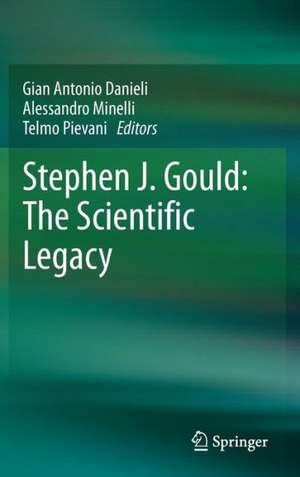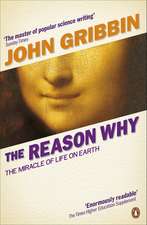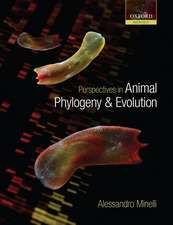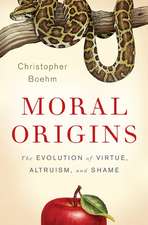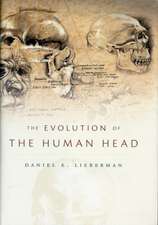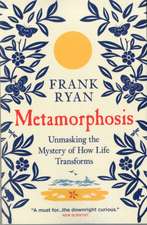Stephen J. Gould: The Scientific Legacy
Editat de Gian Antonio Danieli, Alessandro Minelli, Telmo Pievanien Limba Engleză Hardback – 4 aug 2013
In May 2012, at the Istituto Veneto di Scienze, Lettere ed Arti in Venice, an international panel of scientists and philosophers discussed Stephen J. Gould’s legacy, ten years after his death. This book presents a selection of those contributions, chosen for their interest and importance. A broad range of themes are covered: Gould’s contribution to evolutionary theory, including the concept of punctuated equilibria and the importance of his pluralism; the Gouldian view of genome and development; Gould’s legacy in anthropology; and, finally, the significance of his thought for the human sciences.
This book provides a fascinating appraisal of the cultural legacy of one of the world’s greatest popular writers in the life sciences. This is the first time that scientists including some of Gould’s personal friends and co-authors of papers of momentous importance such as Niles Eldredge have come together to strike a balanced view of Gould's intellectual heritage.
| Toate formatele și edițiile | Preț | Express |
|---|---|---|
| Paperback (1) | 1213.16 lei 6-8 săpt. | |
| Springer – 6 aug 2015 | 1213.16 lei 6-8 săpt. | |
| Hardback (1) | 1217.75 lei 6-8 săpt. | |
| Springer – 4 aug 2013 | 1217.75 lei 6-8 săpt. |
Preț: 1217.75 lei
Preț vechi: 1485.06 lei
-18% Nou
Puncte Express: 1827
Preț estimativ în valută:
233.02€ • 243.90$ • 193.94£
233.02€ • 243.90$ • 193.94£
Carte tipărită la comandă
Livrare economică 31 martie-14 aprilie
Preluare comenzi: 021 569.72.76
Specificații
ISBN-13: 9788847054233
ISBN-10: 8847054230
Pagini: 240
Ilustrații: VIII, 208 p.
Dimensiuni: 155 x 235 x 20 mm
Greutate: 0.45 kg
Ediția:2013
Editura: Springer
Colecția Springer
Locul publicării:Milano, Italy
ISBN-10: 8847054230
Pagini: 240
Ilustrații: VIII, 208 p.
Dimensiuni: 155 x 235 x 20 mm
Greutate: 0.45 kg
Ediția:2013
Editura: Springer
Colecția Springer
Locul publicării:Milano, Italy
Public țintă
ResearchCuprins
Part I: Evolutionary theory.- Niles Eldredge: Stephen J. Gould in the 1960s and 1970s, and the origin of “Punctuated Equilibria”.- Elisabeth A. Lloyd: Stephen J. Gould and adaptation: San Marco 33 years later.- Telmo Pievani: Kinds of pluralism. Stephen J. Gould and the future of evolutionary theory.- Part II: Genome and development.- T. Ryan Gregory: Molecules and macroevolution: a Gouldian view of the genome.- Alessandro Minelli: Individuals, hierarchies and the levels of selection: a chapter in Stephen J. Gould’s evolutionary theory.- Gerd B. Müller: Beyond spandrels: Stephen J. Gould, EvoDevo, and the extended synthesis.- Marcello Buiatti: Biological complexity and Punctuated Equilibria.- Part III The anthropological legacy.- Ian Tattersall: Stephen J. Gould’s intellectual legacy to anthropology.- Guido Barbujani: Mismeasuring man thirty years later.- Klaus R. Scherer: Affect bursts as evolutionary precursors of speech and music.- Winfried Menninghaus: Darwin's theory of music, rhetoric and poetry.- Part IV: Stephen J. Gould and human sciences.- Andrea Cavazzini: Beyond (and without) the invisible hand. Conceptual shifts between economics and the theory of evolution.- Alberto Gualandi: Stephen J. Gould, between humanism and anti-humanism. Neoteny, exaptation and human science.
Recenzii
From the book reviews:
“The book under review represents the proceedings of a meeting held at the Instituto Veneto during early May 2012 to memorialize the tenth anniversary of Gould’s death. … This book will be useful and important for serious historians of science and for evolutionary biologists with special interest in the background of their own discipline.” (Charles R. Crumly, Journal of Biological Physics, Vol. 41, 2015)
“This slender volume of 13 essays touches, in varying degrees, on Gould’s work in these fields. … most chapters are well written and provocative. … the book will interest historians of evolutionary thought and Gould’s most ardent fans. Summing Up: Recommended. Graduate students, researchers/faculty, and professionals.” (J. L. Hunt, Choice, Vol. 51 (7), March, 2014)
“The book under review represents the proceedings of a meeting held at the Instituto Veneto during early May 2012 to memorialize the tenth anniversary of Gould’s death. … This book will be useful and important for serious historians of science and for evolutionary biologists with special interest in the background of their own discipline.” (Charles R. Crumly, Journal of Biological Physics, Vol. 41, 2015)
“This slender volume of 13 essays touches, in varying degrees, on Gould’s work in these fields. … most chapters are well written and provocative. … the book will interest historians of evolutionary thought and Gould’s most ardent fans. Summing Up: Recommended. Graduate students, researchers/faculty, and professionals.” (J. L. Hunt, Choice, Vol. 51 (7), March, 2014)
Textul de pe ultima copertă
Stephen J. Gould’s greatest contribution to science is a revised version of the theory of evolution which offers today a useful framework for understanding progress in many evolutionary fields. His intuitions about the conjunction of evolution and development, the role of ecological factors in speciation, the multi-level interpretation of the units of selection, and the interplay between functional pressures and constraints all represent fruitful lines of experimental research. His opposition to the progressive representations of evolution, the gene-centered view of natural history, or the adaptationist “just-so stories” has also left its mark on current biology.
In May 2012, at the Istituto Veneto di Scienze, Lettere ed Arti in Venice, an international panel of scientists and philosophers discussed Stephen J. Gould’s legacy, ten years after his death. This book presents a selection of those contributions, chosen for their interest and importance. A broad range of themes are covered: Gould’s contribution to evolutionary theory, including the concept of punctuated equilibria and the importance of his pluralism; the Gouldian view of genome and development; Gould’s legacy in anthropology; and, finally, the significance of his thought for the human sciences.
This book provides a fascinating appraisal of the cultural legacy of one of the world’s greatest popular writers in the life sciences. This is the first time that scientists including some of Gould’s personal friends and co-authors of papers of momentous importance such as Niles Eldredge have come together to strike a balanced view of Gould's intellectual heritage.
In May 2012, at the Istituto Veneto di Scienze, Lettere ed Arti in Venice, an international panel of scientists and philosophers discussed Stephen J. Gould’s legacy, ten years after his death. This book presents a selection of those contributions, chosen for their interest and importance. A broad range of themes are covered: Gould’s contribution to evolutionary theory, including the concept of punctuated equilibria and the importance of his pluralism; the Gouldian view of genome and development; Gould’s legacy in anthropology; and, finally, the significance of his thought for the human sciences.
This book provides a fascinating appraisal of the cultural legacy of one of the world’s greatest popular writers in the life sciences. This is the first time that scientists including some of Gould’s personal friends and co-authors of papers of momentous importance such as Niles Eldredge have come together to strike a balanced view of Gould's intellectual heritage.
Caracteristici
Wide-ranging appraisal of the scientific and anthropological legacy of Stephen J. Gould, ten years after his death
Scientists including Niles Eldredge join forces to offer a balanced view of Gould's intellectual heritage
Sections covering evolutionary theory, the genome and development, Gould’s anthropological legacy, and the significance of his thought for the human sciences
Scientists including Niles Eldredge join forces to offer a balanced view of Gould's intellectual heritage
Sections covering evolutionary theory, the genome and development, Gould’s anthropological legacy, and the significance of his thought for the human sciences
